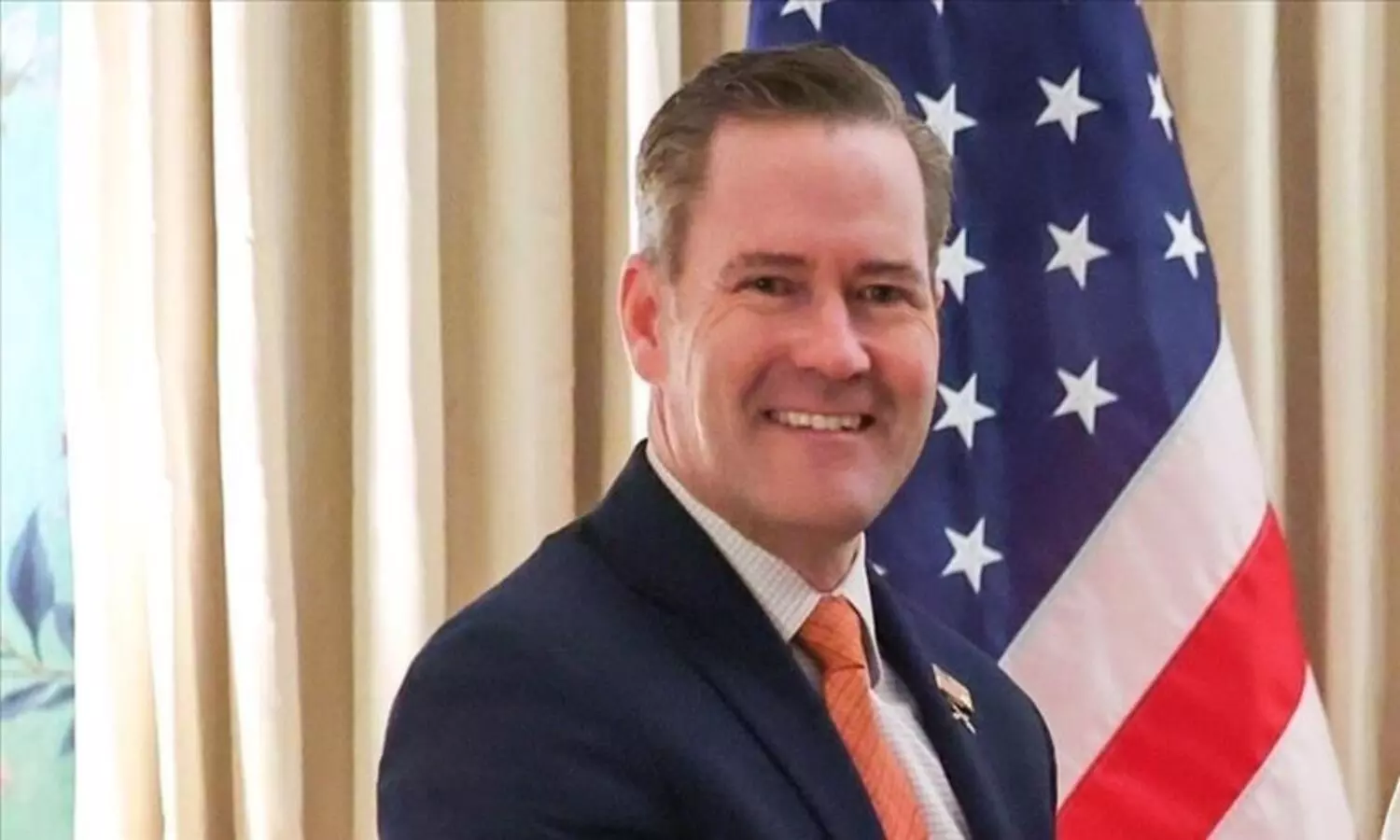US Security Adviser Waltz Takes Responsibility for Signal Chat

US Security Adviser Waltz Takes Responsibility for Signal Chat
US Security Adviser Mike Waltz admits responsibility for a Signal chat where officials discussed Yemen strikes, raising security concerns and legal issues.
U.S. National Security Adviser Mike Waltz acknowledged responsibility for creating a Signal group chat where senior officials discussed military actions in Yemen, including a journalist who was mistakenly added.
“I take full responsibility. I built the group,” Waltz stated during an interview with Fox News on Tuesday, calling the situation “embarrassing.”
President Donald Trump and top intelligence officials have dismissed security concerns, maintaining that no classified material was shared. However, bipartisan lawmakers have called for an investigation, describing the incident as a serious breach.
Jeffrey Goldberg, editor-in-chief of The Atlantic, reported that he was mistakenly added to the Signal chat by a user named Mike Waltz. In an article breaking the story, Goldberg claimed he had access to classified details about U.S. military strikes in Yemen, including weapons packages, targets, and timing, two hours before the strikes occurred. However, those details were withheld from publication.
During his Fox News appearance, Waltz did not clarify how Goldberg was added to the group. Contradicting Trump’s statement, he denied that a member of his staff was responsible. Instead, he suggested that another unnamed contact was intended to be in the chat instead of Goldberg.
“We have top technical experts investigating how this happened,” Waltz said, asserting that Goldberg’s number was not saved in his phone. He also claimed to have reached out to Elon Musk for assistance in identifying the source of the error.
Trump, speaking to Newsmax, dismissed the situation as a “glitch” with “no operational impact.” He suggested that a lower-level associate of Waltz may have mistakenly had Goldberg’s contact information.
At a Senate hearing on Tuesday, U.S. Director of National Intelligence Tulsi Gabbard and CIA Director John Ratcliffe testified that no classified data was shared within the group chat. Other participants reportedly included Vice President JD Vance and Defense Secretary Pete Hegseth.
Mark Warner, Democratic vice-chairman of the Senate Intelligence Committee, criticized the incident, stating, “This raises serious concerns about the Trump administration’s handling of national security.”
Goldberg’s report also revealed that participants discussed shifting financial responsibility for securing shipping lanes onto European nations. On March 14, an account attributed to Waltz wrote, “Whether now or weeks from now, the United States will have to reopen these shipping lanes.”
The chat also indicated internal frustration over Europe’s reliance on U.S. military actions. The account associated with Vance expressed discontent over the operation benefiting European nations, stating, “I just hate bailing Europe out again.” Three minutes later, Hegseth reportedly replied, “VP: I fully share your loathing of European free-loading. It’s PATHETIC.”
The disclosure has triggered legal challenges and renewed scrutiny of the administration’s communication practices. Watchdog group American Oversight filed a lawsuit against officials involved, citing potential violations of the Federal Records Act and the Administrative Procedure Act. The group contends that setting the chat to automatically delete messages contravenes record-keeping laws requiring White House officials to archive communications.
Additionally, recently obtained NSA documents indicate that the agency had warned employees of vulnerabilities in the Signal messaging app just last month. The exposure of sensitive military discussions on a civilian platform has raised alarms among national security experts, who warn of operational risks and legal violations.
Congressional lawmakers and federal agencies are reviewing the implications of the leaked chat. The National Archives is assessing potential violations, while intelligence officials analyze the security impact. The administration has not yet announced any formal policy changes in response to the controversy.















